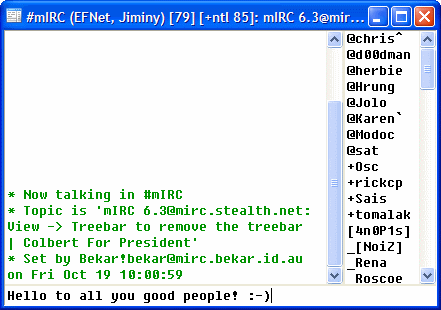
A whole lotta people had those National Geographic lifetime subscriptions. (kahunna/Flickr)
What does a lifetime license really mean these days? Is it something that is supposed to last many years, or is it intended to eventually expire?
I think about how my dad (who had the same first name as me) used to have a lifetime subscription to National Geographic. When he died while I was still in my late teens, the magazines kept coming. Eventually, I went away for college, and soon enough … the magazines started coming my way. They stopped at some point—the folks at Nat Geo probably figured out that we weren’t the same person, that it might be odd for someone who has been getting these magazines for 20+ years to suddenly be living in a dorm room. But when I think of lifetime subscriptions, National Geographic will remain the high watermark. (Though, honestly, it doesn’t look like they are still offering it—with the most recent record I can find dating to 2015—which might make sense given the ownership changes Nat Geo has seen in recent years. Anyone know?)
Wondershare, the company that makes the easy-to-use video editing software Filmora, is definitely not looking to be the next National Geographic.
Recently, the company has faced the scrutiny of the YouTube public for its poor handling of a situation regarding the software, which it sold in multiple forms—a SaaS-style subscription model, a multi-user tier, and a single-user lifetime license. The lifetime license, just $20 more than the $39.99/year subscription, was clearly the one to get if you were really into this kind of software, as it offered free updates for life. When YouTuber Daniel Batal, who specializes in tutorials for the very kinds of filmmakers Filmora was looking to target, saw the software, he heavily recommended it to his audience. They even did a sponsorship deal with Batal.
But the problem was, the company kept updating the software, and its most recent version, it tried to do something sneaky with the terminology. Rather than referring to it as an “update,” as every other version of the software had been called, it was now an “upgrade”—which essentially invalidated the licenses for upgrading to this new version.
This did not sit well with Batal, who essentially staked his reputation on this software.
“I was actually Filmora’s very first brand ambassador, and I’ve made over a hundred videos about filmora teaching people how to use that software,” Batal recalled in a clip. “I’ve actually driven tens of millions of views to those videos and I’ve even had thousands of people buy their own Filmora licenses—well, because I told them.”
The situation got messy from there—with Wondershare suddenly claiming copyright on the sponsored video they created together, Batal creating more videos drawing attention to the situation, and finally, Wondershare backing down in the face of bad press.
“We apologize for the confusion and frustration caused by the lack of clear license information on the Filmora 9 purchasing page,” the company wrote on Twitter. “We take full responsibility for the communication issue and are determined to make things right.”
In the middle is Batal, who basically burned a longtime sponsor out of concern for his audience. He got Wondershare to change its tune, though he still has a mess on his hands because of the copyright claim.
I guess the question to ask here is, do lifetime licenses make sense anymore? With ll this in mind, I want to point to an example from the old old days in which a piece of software came with a lifetime license—mIRC, a landmark IRC client for Windows. A controversy around that vintage application came up a couple of months ago after a tech outlet noticed that the developer, Khaled Mardam-Bey, had changed the terms around the software:
When I originally offered a lifetime license in 1995, it seemed like a kind and fair thing to do. However, I did not expect that I would still be working on mIRC twenty-five years later. The lifetime license means that I am still supporting and providing updates to every user that has ever registered. This has become gradually more difficult and has reached the point where, sadly, it is just no longer possible. If your registration is over ten years old, if you can, please consider registering again. Your continued support for mIRC would be really appreciated. If you register again, you will receive an updated registration automatically. If you cannot afford to register again, or would rather not, that’s okay, just email me. However, please be aware that it will take time for me to reply.”

mIRC’s lifetime license seems a little difficult to manage a quarter-century in.
He softened the language after it got attention, and the blurb now says, “If you still enjoy using mIRC, and you have an old registration, if you can, please consider registering again. Your continued support for mIRC would be really appreciated.”
Should we expect lifetime licenses to live forever? Is that a realistic ask in 2023? A better question: Should developers promise lifetime licenses to draw attention, then change their minds four years later?
Time limit given ⏲: 30 minutes
Time left on clock ⏲: 1 minute, 11 seconds



